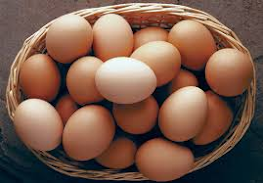Why You Need to Prioritize Protein - By a Calisthenics Athlete
Why Eating Enough Protein is Non-Negotiable for Calisthenics Success
When people ask me what the most underrated “secret weapon” is in calisthenics, my answer is simple: protein. I see athletes grinding every day—pushing their limits with front levers, muscle-ups, planche progressions—yet they stall in progress, not because of effort or technique, but because their nutrition is off. More specifically, they’re not eating enough protein.
Let me put it bluntly: if you’re serious about building strength, gaining lean muscle, and recovering faster, you cannot afford to neglect your protein intake.
Protein: The Building Block of Progress
Protein is made up of amino acids, the building blocks of your muscles, tendons, enzymes, and even hormones. Every time you train—whether it's push-ups, pull-ups, or isometric holds—you’re causing tiny micro-tears in your muscle fibers. That’s a good thing. It’s how your muscles grow. But they only rebuild stronger if you give them the raw materials they need, and that means adequate protein.
If you skip on protein, your body struggles to repair and rebuild those torn muscle fibers. That means longer recovery, reduced strength gains, and in some cases, muscle loss.
How Much Protein Do You Need?
The golden question. While individual needs vary, most active individuals doing regular calisthenics training should aim for 1 to 2 grams of protein per kilogram of body weight daily. So if you weigh 70 kg (about 154 pounds), you should be eating somewhere between 100 and 130 grams of protein per day.
This isn’t just bro-science—it’s backed by research in sports nutrition. And no, you don’t have to chug protein shakes all day to hit your target. Real food is your foundation.
Easy Protein Sources for Calisthenics Athletes
Hitting your protein goals doesn’t have to be complicated. Here are some go-to options I rely on daily:
-
Eggs – Nutrient-dense, versatile, and complete in amino acids.
-
Chicken breast or thighs – Lean, high-protein, and easy to meal-prep.
-
Greek yogurt or cottage cheese – Excellent for snacks or late-night recovery.
-
Lentils and chickpeas – Great for plant-based athletes.
-
Tofu and tempeh – High-protein vegan options with great texture.
Aim to get some protein at every meal. Your body can’t store excess protein the way it stores fat or carbs, so consistent intake throughout the day is key.
Recovery and Growth Hinge on Protein
You’re not growing when you train—you’re growing when you recover. That post-workout window is prime time to fuel muscle repair, and protein plays a central role. Pairing protein with a source of carbohydrates post-workout is one of the simplest and most effective strategies you can use.
For me, a post-workout bowl of oatmeal with a scoop of protein powder and peanut butter hits the spot. It’s quick, easy, and gets the job done.
Common Mistakes to Avoid
-
Underestimating your needs – Many athletes think they’re eating enough until they track it. Use a food tracking app for a week and see where you really stand.
-
Relying solely on supplements – Protein powders are helpful but shouldn't replace real, whole foods. Use them as a tool, not a crutch.
-
Skipping protein on rest days – Your body still needs protein to recover, even when you’re not training. Muscle recovery doesn’t stop just because you’re taking a day off.
Final Thoughts
Training hard is only half the equation. If you’re doing pull-ups until your hands tear, grinding through push-up pyramids, or learning advanced holds, you owe it to yourself to fuel your body correctly. And that starts with eating enough protein.
Think of protein as your training partner—quiet, consistent, and always working behind the scenes to help you level up.
Train smart. Eat right. Recover well.
Your gains will thank you.


.jpg)
Comments
Post a Comment